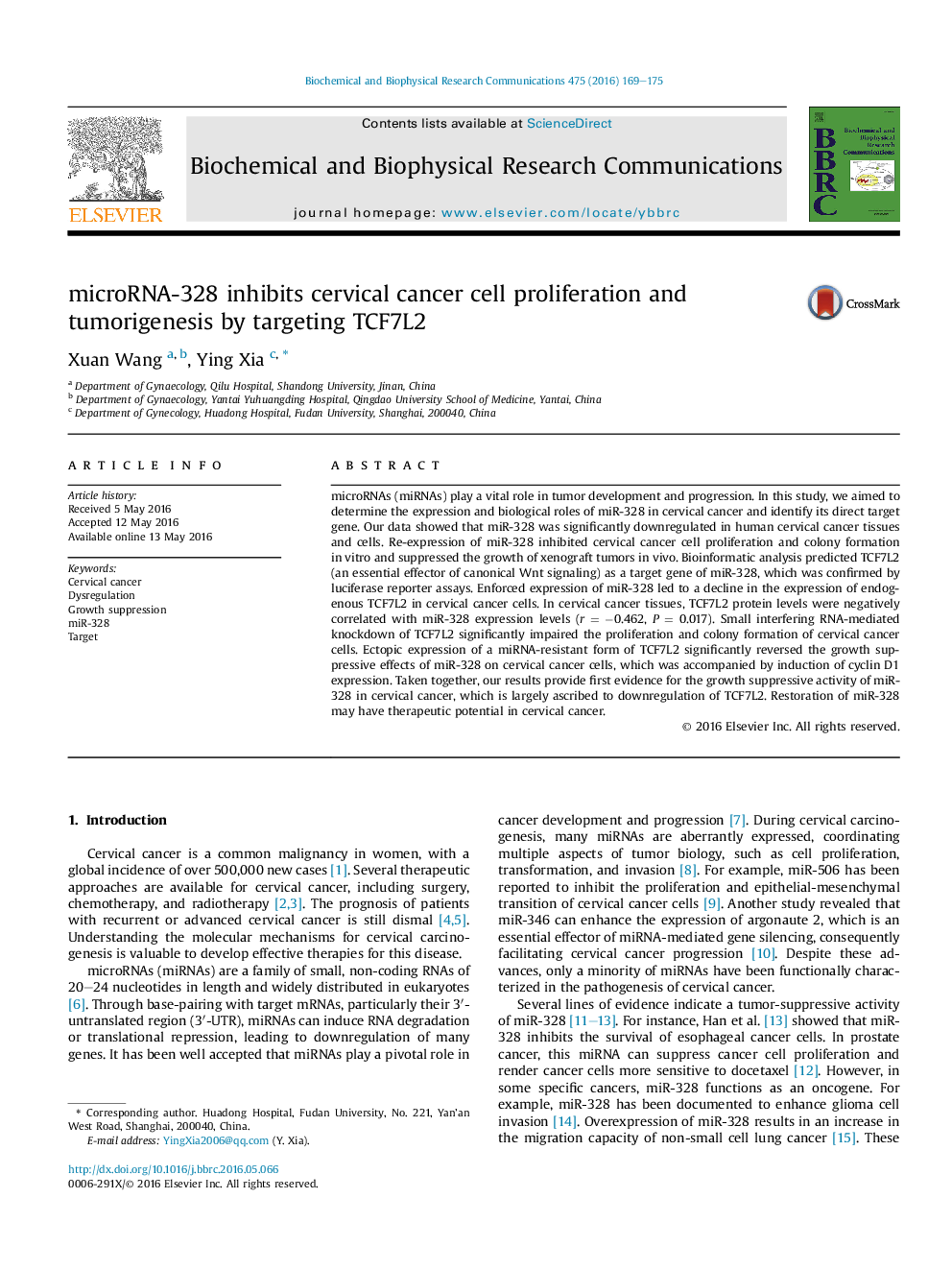| Article ID | Journal | Published Year | Pages | File Type |
|---|---|---|---|---|
| 1927827 | Biochemical and Biophysical Research Communications | 2016 | 7 Pages |
•miR-328 inhibits cervical cancer cell growth and tumorigenesis.•TCF7L2 is a direct target gene of miR-328 in cervical cancer.•Knockdown of TCF7L2 impairs the proliferation and colony formation of cervical cancer cells.
microRNAs (miRNAs) play a vital role in tumor development and progression. In this study, we aimed to determine the expression and biological roles of miR-328 in cervical cancer and identify its direct target gene. Our data showed that miR-328 was significantly downregulated in human cervical cancer tissues and cells. Re-expression of miR-328 inhibited cervical cancer cell proliferation and colony formation in vitro and suppressed the growth of xenograft tumors in vivo. Bioinformatic analysis predicted TCF7L2 (an essential effector of canonical Wnt signaling) as a target gene of miR-328, which was confirmed by luciferase reporter assays. Enforced expression of miR-328 led to a decline in the expression of endogenous TCF7L2 in cervical cancer cells. In cervical cancer tissues, TCF7L2 protein levels were negatively correlated with miR-328 expression levels (r = −0.462, P = 0.017). Small interfering RNA-mediated knockdown of TCF7L2 significantly impaired the proliferation and colony formation of cervical cancer cells. Ectopic expression of a miRNA-resistant form of TCF7L2 significantly reversed the growth suppressive effects of miR-328 on cervical cancer cells, which was accompanied by induction of cyclin D1 expression. Taken together, our results provide first evidence for the growth suppressive activity of miR-328 in cervical cancer, which is largely ascribed to downregulation of TCF7L2. Restoration of miR-328 may have therapeutic potential in cervical cancer.
